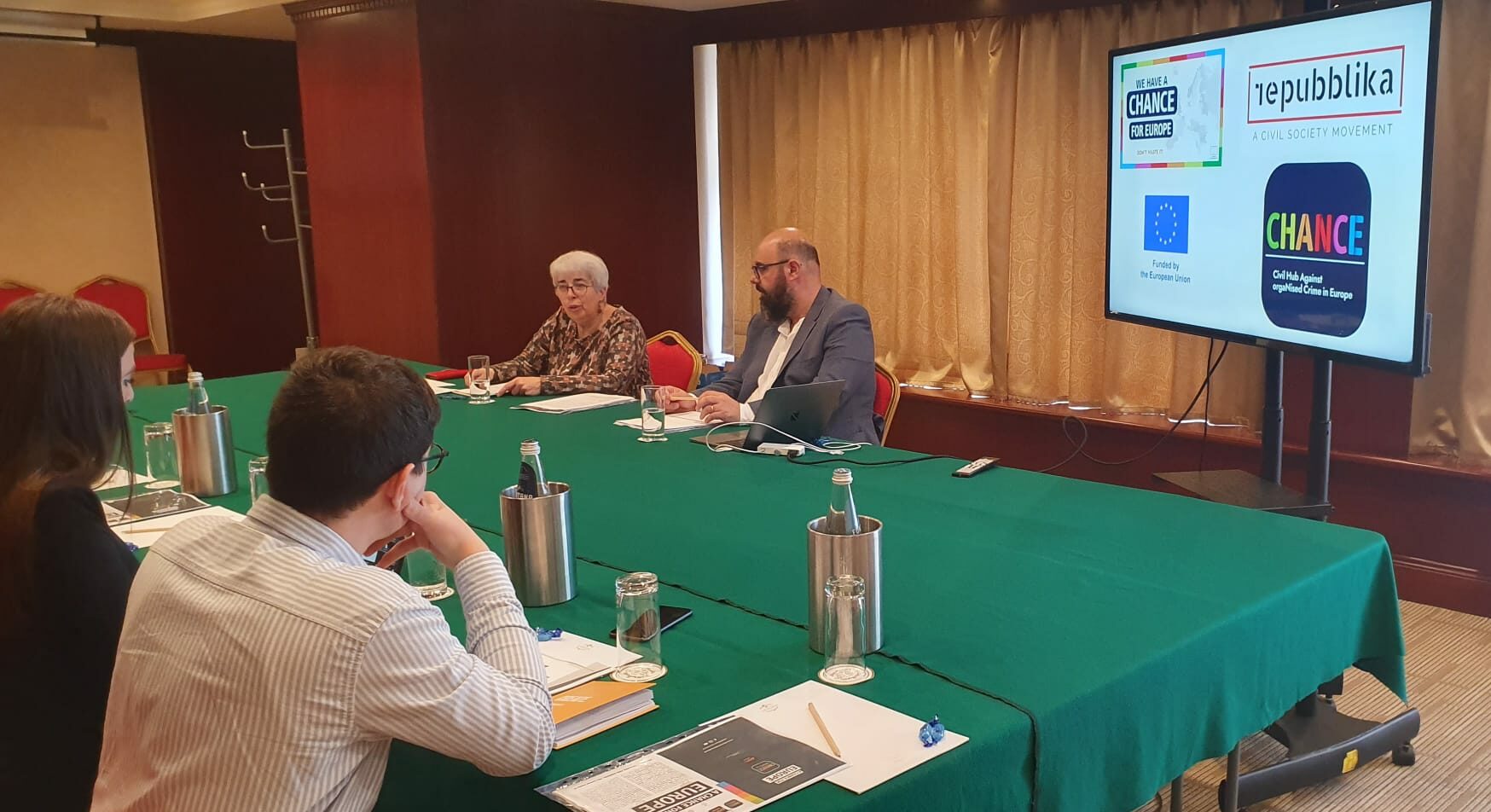In the build-up to the European Parliament elections in June, Repubblika has taken a leading role in a Europe-wide, EU-backed civil society network that monitors and combats organised crime and corruption.
The network, CHANCE (Civil Hub Against OrgaNised Crime in Europe), brings together associations, movements, informal groups and activists from several EU member states to promote cooperation in the fight against mafia activity. CHANCE is funded by the EU and was launched during an event held at the European Parliament in 2019.
One of the CHANCE network’s current projects is to scrutinise the EU parties’ political programs for conformity with the network’s manifesto that calls for more effective action to be taken against organised crime and corruption.
CHANCE manifesto
The manifesto, called “A Chance for Europe”, requests the commitment of political leaders, parties, representatives in the EU parliament as well as the European Commission to allow for deeper engagement of civil society in this vital task, while taking five broad actions:
- Recognise organised crime as a European problem.
- Reclaim common goods from organised crime.
- Involve civil society in the monitoring of EU spending.
- Protect and provide justice and reparation for victims of organised crime.
- Protect the environment and public health from ecomafias.
By scrutinising the political groups’ programs with its manifesto as the reference point, CHANCE wants to empower citizens with information as they prepare to vote for their MEPs.
The Maltese rule-of-law NGO Repubblika, a partner in CHANCE, has been leading this effort. Repubblika President Vicki Ann Cremona and Executive Officer Manuel Delia presented the findings on Tuesday, May 7. (Full report and summary presentation attached).
Findings
The following are among the main findings that emerge from the study of the manifestos of ALDE, the European Left, the European Greens, the EPP and PES:
Organised crime and corruption: Organised crime and corruption are generally recognised by the political groups as a European problem. However, they are perceived mainly as a security and law enforcement consideration, with no acknowledgement of the social contexts of organised crime. PES acknowledges the risk that organised crime poses to citizen safety, and the Greens recognise the damage it does to democracy. The EPP, PES and ALDE see corruption as a policy priority area.
Protection of victims: The EPP and PES want improved policing on trafficking, particularly women and girls, and the European Left seek legal routes for migrants.
Engagement of civil society: PES and ALDE view civil society as having a crucial role to play in fostering democracy, and make a commitment to supporting civil society organisations in fulfilling this function. PES would like to see civil society participating in EU Cohesion Policy, while the Greens seek structured dialogue with NGOs, and ALDE are pushing for a greater share for citizens in governance of Europe.
Maltese issues
Reclaimed goods: While a new directive on the social re-use of confiscated assets is to be transposed into local legislation within the next two years, Malta has a poor record of confiscation and has also recently weakened its laws on the freezing of assets. Furthermore, it has no anti-mafia law on its statute books while its long-promised social enterprise law has not yet been enacted.
Engagement of civil society: Reports drawn up by international organisations – namely the EU, OECD and Venice Commission Report – have called for a greater role for civil society in the legislative process, in monitoring elections and in dialogue with institutions. Achieving this remains a big challenge in Malta.
Background
The initiative to scrutinise the European groups’ political programs is part of the network’s Youth in Connection project which seeks to enhance youth involvement in civic affairs with a focus on the promotion of social justice and combating crime and corruption.
With thousands of criminal organisations under investigation in Europe, the majority of them operating transnationally, and a black market worth well over one billion euros, CHANCE wants to bring into public view the destructive effects of mafia activity on communities everywhere, and the importance of a greater EU effort to fight these criminal threats.
“The current situation requires an ever greater focus on the fight against organised crime and corruption,” CHANCE says on its website.
“Indeed, the cycle of EU policies against organised crime (Fighting Organised Crime – EU strategy for 2021-25), promoted by the European Union in the fight against criminal threats on a continental scale, underlines the need to strengthen cooperation between Member States, European Institutions and Agencies as corruption is ubiquitous amongst serious and organised crime groups in Europe.”
Social costs
Often, the public is unaware of the huge damage caused to society by the infiltration of organised crime in institutions. Corruption raises the cost and reduces the quality of government services, stalls development, influences laws, distorts democratic processes and stops public officials from acting in the interest of citizens. Organised crime damages enterprise, manipulates the free market and threatens violence. It drags people into trafficking networks while corruption enlarges the gap in opportunities to access education, health care, infrastructure and decent living conditions.
“Organised crime finds its most fertile ground in social injustice and inequality,” CHANCE says in its manifesto. It calls for the creation of a more equitable society as a powerful tool to eliminate organised crime and corruption.




